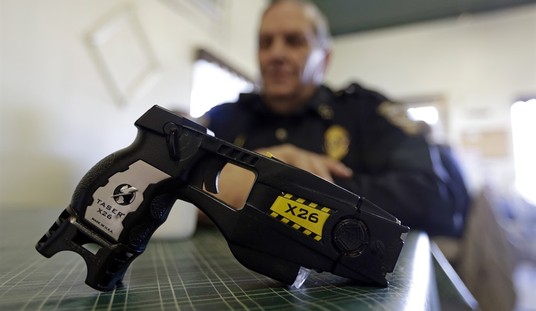Corporations have a duty to maximize shareholder value. That’s the purpose of their existence. When they stray from that mission, they can jeopardize it. Wokeism, often in the form of ESG (Environmental, Social, and Governance) guidelines, has led corporations to wade into politics and culture, and understandably caused serious blowback to those corporations as they have faced the resentment and wrath of the American public.
One of the issues that some American corporations decided they could wade into is guns. With technocratic arrogance, they went against their core missions and attacked one-half of the country by adopting positions that are anathema to them. Arguably, this is also that half of the country that generally supports free markets and freedom of enterprise. The backlash has come in the form of legislation that has hurt these corporations.
In the world of guns, the type of legislation that has taken hold in many states is similar to Texas’ Firearms Industry Non-Discrimination (FIND) Act, which the NSSF succinctly describes as follows:
The new law requires corporations seeking to do business with the state and local government to certify that they hold no policies that discriminate against firearms or ammunition companies and will not implement any such policies while the contracts are in force. The law ensures that taxpayer-funded contracts aren’t used to benefit policies that discriminate and deny services to firearm and ammunition-related businesses. Texas taxpayers won’t be burdened with funding discriminatory policies that undermine their rights and throttle the businesses that provide the means to exercise those rights.
The above law caused the exit of some large financial institutions from the lucrative Texas government bond market. The loss is palpable, so some of those institutions are having second thoughts about going after guns. Bloomberg reported the following yesterday (archive link):
Bank of America’s Return to Texas Muni Market Stalled by More Gun Questions
Bank of America Corp. wants to revive its work in the No. 1 market for US municipal-bond sales.
But it doesn’t appear to have gotten a nod yet from the Republican-led Texas Attorney General’s Office, which is grilling the bank on its policies surrounding the firearms industry.
Austin Kinghorn, Texas associate deputy attorney general for legal counsel, sent the bank’s law firm dozens of questions about its gun industry policies in a June 26 letter. The document was obtained through a public records request.
You can find the letter here, and it’s five glorious pages of pointed questions.
The bank suspended underwriting in Texas in late 2021 after a new GOP law barred governmental entities from working with companies that “discriminate” against firearm entities. Bank of America doesn’t lend to companies that make assault-style guns used for non-military purposes. After suspending work there, the bank sent a letter in May saying it intends to resume work with public clients in Texas.
The Texas Attorney General’s Office asked about that policy, such as a list of specific products that fall under that category and who determines that. “If ‘military-style weapon’ is not a clearly defined term, how does BofA ensure that it does not discriminate against firearm entities?” Kinghorn’s letter said.
I don’t understand why Bloomberg put scare quotes around “discriminate.” It’s not a disputable claim. Likewise, Bloomberg parrots gun control verbiage like “assault-style” without attempting to explain to its readers what that could possibly mean.
The office’s detailed response to Bank of America indicates that it may face a long process before it can resume municipal-bond underwriting in Texas. Kinghorn’s letter said the office may have additional questions.
Bank of America is being duplicitous and it’s kind of brazen for them to try to wade back into the market without changing their policies.
Bank of America’s law firm previously said in a letter to the attorney general’s office that the bank generally considers the firearms industry as “high-risk, with clients subject to a heightened due diligence requirement.” Because of that, the bank avoids certain business transactions based on “traditional business reasons.”
Kinghorn asked why the bank considers the firearms industry to be high-risk.
“Explain how any risk profile of the firearm industry materially jeopardizes the adequacy of your earnings, liquidity, or capital more than other industries and provide evidence of same,” Kinghorn said in a separate question. He asked for a response in 45 days.
Kudos to the Texas Attorney General’s office for keeping up the pressure.
Bank of America was started by an Italian immigrant and originally known as the Bank of Italy. It provided an unmatched service to the public in the aftermath of the San Francisco earthquake and grew rapidly to become what it is. The American system of liberty made its growth and success possible.
Bank of America, and US corporations, should never forget that and betray the foundational principles of this country, lest they face the justifiable anger of We the People.









Join the conversation as a VIP Member